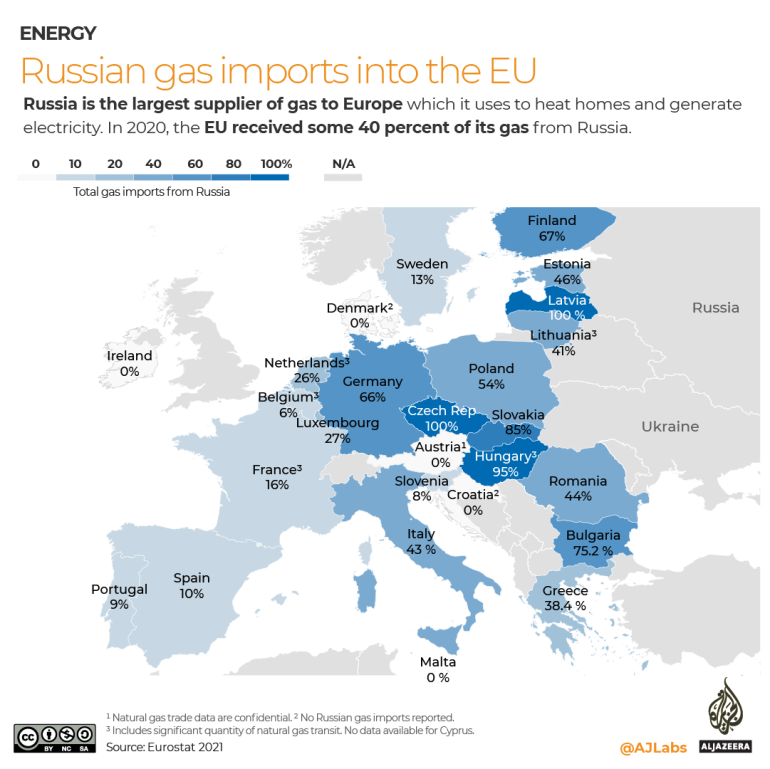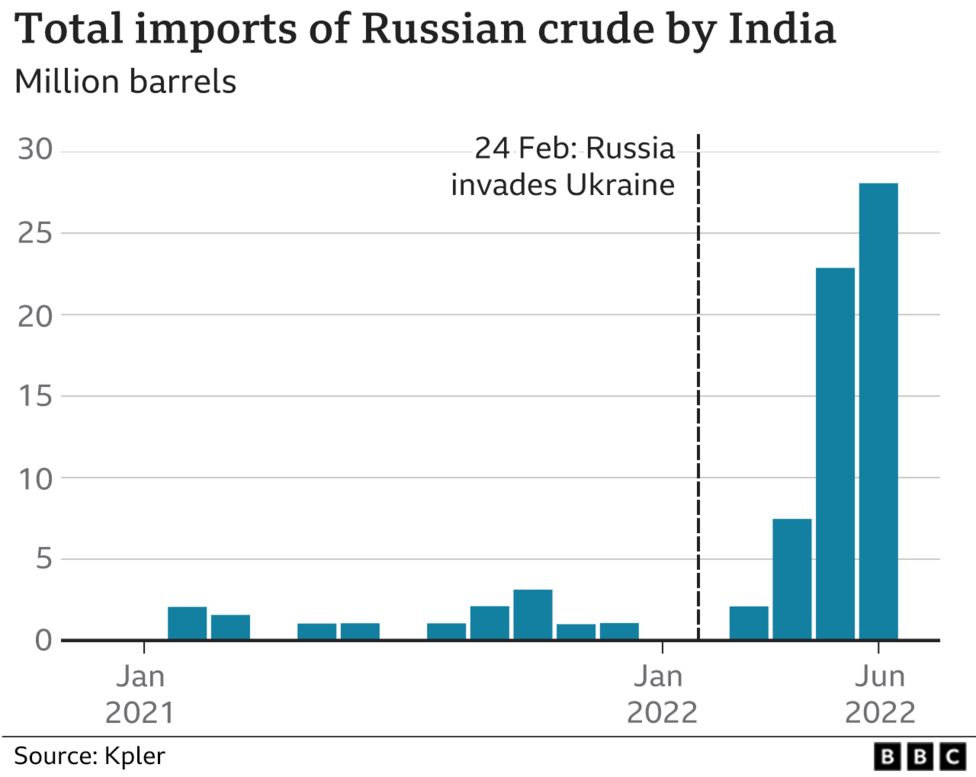The energy crisis in Europe: will Russia cut off the gas?
- Sebastian Palacios.

- Jul 15, 2022
- 4 min read
Updated: Sep 7, 2022
When Russia was accused of committing war crimes in Ukrainian cities, specially in Bucha and Mariupol, the European Union decided to increase its economic sanctions in order to stop buying Russian oil, gas and coal as much as possible before the end of this year. The Kremlin has said that allegations about Russian forces executing civilians are a "monstrous forgery" aimed at denigrating the Russian army, despite numerous evidence that the accusations are true.
Before the full-scale invasion, the EU imported from Russia 50% of its coal, 40% of its gas and 25% of its oil. A consensus around the decision to ban these Russian goods was difficult to reach, as many countries in central and eastern Europe are heavily dependent on energy contracts signed with the Kremlin to deliver cheap fossil fuels.
The first package of sanctions included stopping the purchase of all Russian oil that comes by sea, whereas individual countries like Germany, Poland and the Baltic states decided to also ban the oil imports that came through pipelines. With this, around 90% of the total EU oil imports from Russia will be banned by the end of this year. After some protests that this could severely hit the economies that are very dependent on trade with Russia, the European Commission agreed to allow certain countries like Hungary and Slovakia to phase out their energy imports one more year, until the end of 2023.
As a response, and because of financial sanctions on Russian banks, the Kremlin asked the EU countries that wanted to continue with their gas deliveries to pay in Russian rubles. Following this threat, Russia has now cut off gas supplies to Poland, Bulgaria, Finland, Denmark and the Netherlands, who refused to pay in Russian rubles.
Russia has also almost completely stopped gas deliveries through the pipeline Nord Stream 1, arguing that the line is under 'technical maintenance'. The countries affected by this are: Germany, France, Italy, Czech Republic, Austria and Slovakia. As a result, gas prices in Europe are now ten times higher than in the US.
The European governments issued a declaration that "the alleged maintenance of pipelines was a lie, and that Russia is using gas deliveries as a political weapon". The International Energy Agency also added that "Russia will find different technical issues here and there, and continue to find excuses to further reduce gas deliveries to Europe and maybe even cut it off completely". The Kremlin responded to this by saying that these maintenance works have been going on almost all the previous years, which is true according to historical data.
In the meantime, many EU countries, specially Germany that has shut down most of its nuclear plants and depends heavily on gas supplies to keep its economy working, are bracing themselves for the biggest energy crisis since WW2. The German civilian population, for example, is already feeling the effects of the shortages; Vonovia, the largest residential landlord in the country, said it would be lowering the temperature of its units to 17 °C during the night; many towns are planning to ration the supply of warm water, with residents only able to take hot showers between 4 and 8 a.m and 5 p.m to 9 p.m; Berlin has lowered the temperature of its public swimming pools and Cologne has reduced the brightness of its streetlights after 11 p.m.
Facing these challenges, European countries have started to increase their imports of Liquefied Natural Gas (LNG) from Qatar and the United States, and coal from all over the world. Currently, it is not possible for a country to rely only on renewable energy as these are unstable sources, and the only non-carbon source of this kind that is available is the nuclear one. Because of this, the European Union has approved natural gas and nuclear power as "clean energy" for investment purposes, to the dismay of climate activists who claim that the war in Ukraine has displaced the global warming discussion from the public debate.
The results of the sanctions from a western point of view have been mixed; since the full-invasion started in February, Russia has increased its revenues from selling fossil fuels to the whole world, including Europe, because the prices have soared very much. Benefiting from discounted prices arranged by the Kremlin, India and China have bought six and three times more oil respectively from Russia in this year compared to 2021. Russia is indeed more isolated, but the sanctions are not hurting its economy as much as it was expected.
The energy crisis in Europe has already directly affected its inflation rates, reaching 12% for the whole area and as much as 22% in the Baltic states. Moreover, the expectation that the EU will suffer a recession due to a possible halt of gas deliveries from Russia, has provoked that for the first time in 20 years, the exchange rate of the euro with the dollar has reached 1:1 this week.
Many of the clues around the question if Russia could start an energy war with Europe are expected to be solved next week, when the 'technical maintenance' work of the pipelines that deliver the gas should be concluded. If Russia cuts the gas, the global tensions will definitely escalate to a very dangerous level.
























Comments